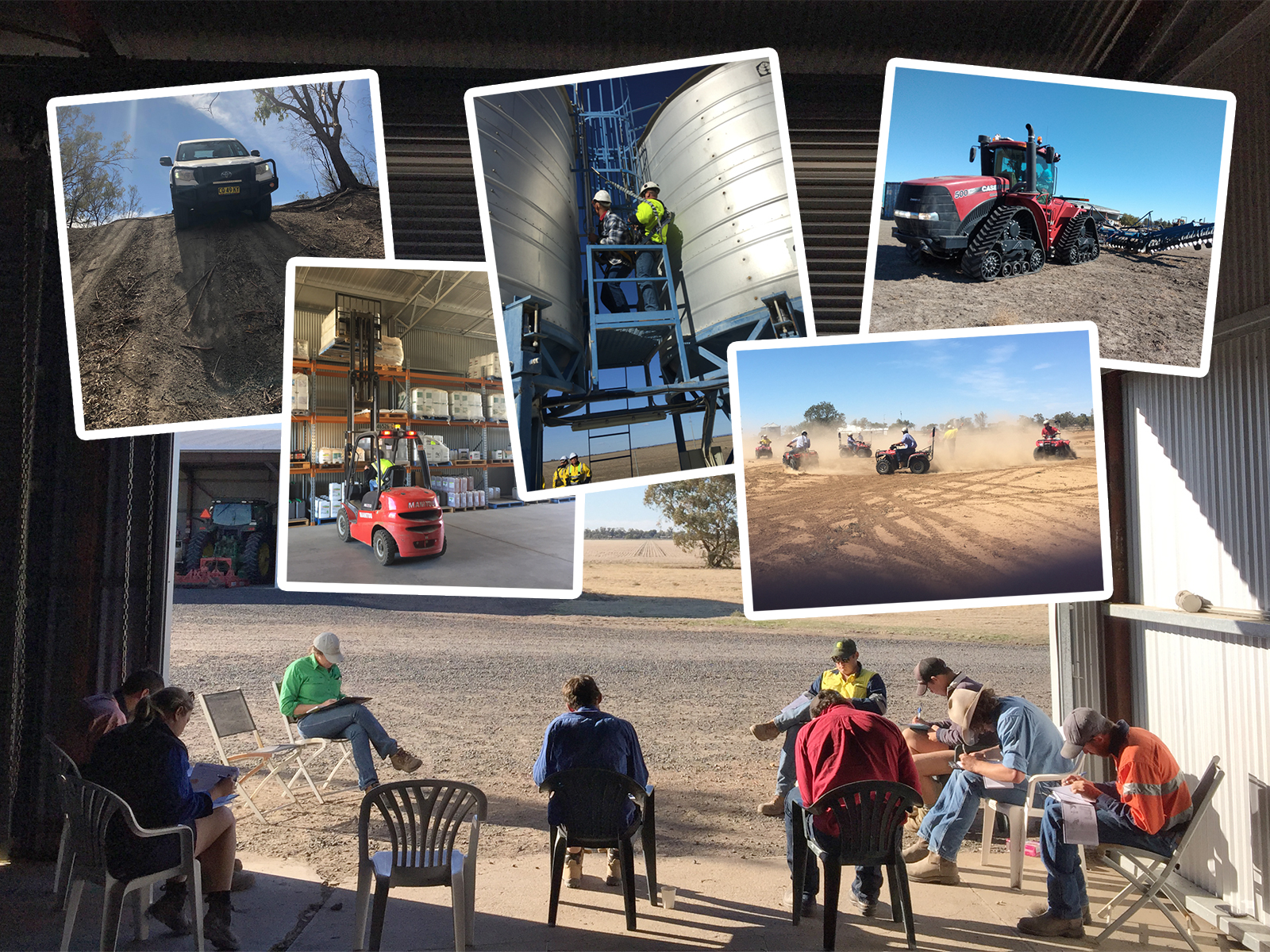We're bringing our practical, hands on safety training to a town near you.
Tocal College is going on the road to towns across NSW offering a week of accredited training focused on farm safety and fully funded to eligible participants.
Upcoming locations
- Chainsaws - trim and cut felled trees
- SMARTtrain chemical application – Level 3 (chemical card)
- SMARTtrain chemical risk management – Level 4
- Operate quad bikes
- Operate side by side utility vehicles
- Operate telehandlers
- Operate tractors with attachments
- Operate tractors with attachments and conduct front-end loader operations
- Machinery hygiene
- WHS for workers
- Enter and work in confined spaces
- Work safely at heights
Contact Karen Stevenson, Tocal College Skills Training Officer
Phone: 0498 064 916
Email: karen.stevenson@dpi.nsw.gov.au
- Chainsaws - trim and cut felled trees
- SMARTtrain chemical application – Level 3 (chemical card)
- SMARTtrain chemical risk management – Level 4
- Operate quad bikes
- Operate side by side utility vehicles
- Operate telehandlers
- Operate tractors with attachments
- Operate tractors with attachments and conduct front-end loader operations
- Machinery hygiene
- WHS for workers
- Enter and work in confined spaces
- Work safely at heights
Contact Jayne Wood, Tocal College Skills Training Coordinator
Phone: 02 6763 1285
Email: jayne.wood@dpi.nsw.gov.au
Courses
This is a great opportunity for locals to pick from a range of safety training, delivered at your doorstep, including operate quad bikes, forklifts, chemical application, tractor operation, working safely at heights, working in confined spaces, machinery hygiene and WHS for managers and supervisors.
Funded training
Most of this training is fully funded through the SafeWork NSW Quad Bike Safety Improvement Program, the NSW Drought Assistance Package, or the NSW Government AgSkilled program for people who work in the rice, horticulture, viticulture, cotton or grains, and livestock industries.
The training is practical and hands on, designed to improve safety on farm.

What people are saying
"Having the training delivered on-farm with their fellow employees made the blokes a lot more comfortable. The trainers were excellent, really down to earth and with genuine work experience they could draw on to make the training relevant” Walgett
Tocal newsletter
Want to find out about news, events, courses and publications?

